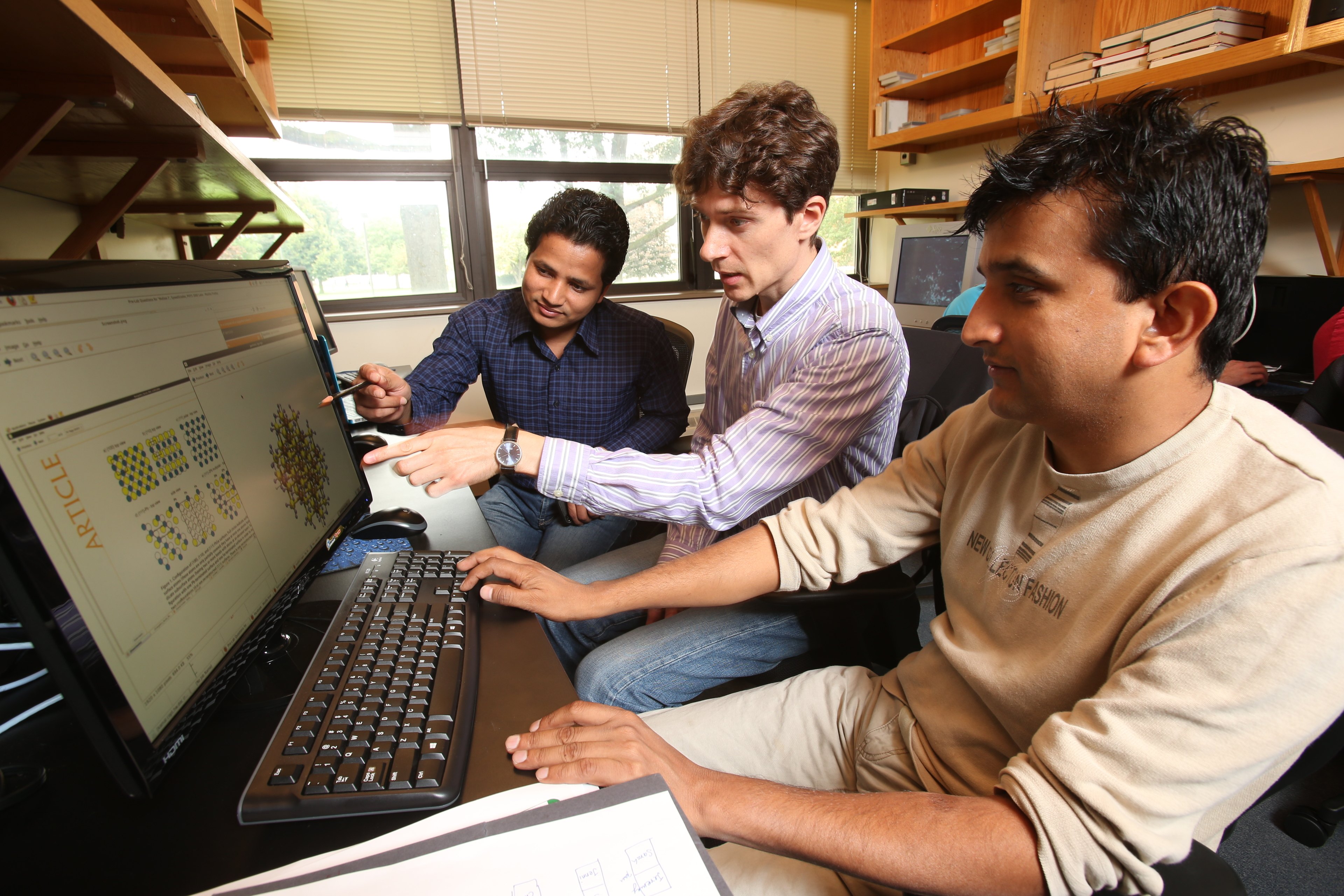Nationally recognized for student experience
The Wall Street Journal

Master of Science (M.S.)
Physics
Bowling Green State University has one of the best physics programs in Ohio, with strong ties to the National Renewable Energy Laboratory.
Our Master of Science in physics opens doors to extraordinary possibilities. It positions you to be a catalyst for discoveries that will define the next century whether you’re probing the electrical properties of nanomaterials or investigating stellar formations across distant galaxies.
We’re looking for thinkers who thrive on complexity and are fueled by a relentless drive to explore the unknown. Our graduate degree in physics nurtures diverse scientific interests for those driven by theoretical questions or practical applications.
An undergraduate background in physics, engineering or related fields provides the foundation. But it’s a passion for discovery and commitment to excellence that ultimately determine student success.
Program highlights
- Outstanding faculty. Our small class sizes ensure personalized mentorship from award-winning faculty who are internationally recognized leaders in materials science, nanoscience, computational physics and astrophysics.
- World-class research facilities. Physics degree students have access to our:
- Cutting-edge femtosecond non-linear optics lab
- A fully equipped low-temperature laboratory
- CCD-based imaging system
- Fast Fourier Transform Infrared Spectrometer for thin-film optical measurements
- Clean ultra-high vacuum evaporation system with resistive and electron-gun evaporation
- Research that pushes boundaries. Graduate students work alongside expert faculty on research that shapes scientific discourse and generates patents, publications and real-world solutions. Our materials physics group investigates electrical, magnetic and optical properties of solids with direct applications in device technology. Our astrophysics group observes time-variable objects like asteroids and interprets their properties and orbits.
- Financial assistance. BGSU provides comprehensive support through tuition assistance, teaching assistantships and research stipends for qualified students.
Weekly physics seminars introduce visiting scholars and homegrown research.
#1 public university in Ohio for career prep
The Wall Street Journal
Career opportunities
If you’ve ever wondered what jobs you can you get with a physics degree, the numbers tell an exciting story: a 7% job growth rate over the next decade and six-figure salary averages for physicists with advanced degrees.
Opportunities for physics degree jobs are expanding faster than ever. Take your pick of amazing career fields:
- Observing the sky with advanced telescopes
- Developing renewable energy solutions
- Driving breakthroughs in telecommunications, medical imaging, data science and quantum computing
Many physics graduates land careers with top tech firms, national laboratories and government agencies. Others transition into Ph.D. programs.
Career paths
- Aerospace systems engineer
- Astronomer or astrophysicist
- Data scientist/Machine learning specialist
- Nanotechnology engineer
- Nuclear physicist
- Optical engineer
- Patent examiner
- Physics lab manager
- Research scientist (physics, materials, applied physics)
- Scientific program manager
- Scientific writer or technical communicator
- Semiconductor process engineer
- University instructor or adjunct professor
Quick Facts from the Bureau of Labor Statistics
Curriculum
Core requirements in the BGSU Master of Science in physics program include coursework that covers essential elements of advanced physics. Students also participate in the Seminar in Physics course every semester during the two-year program. The seminar allows you to gain valuable experience in presenting and discussing current research topics within the physics community.
Culminating experience
The master’s curriculum offers two completion tracks to accommodate different career goals and research interests. The two culminating experience options are designed to prepare you for doctoral studies or careers in industry.
- Plan I is a traditional thesis track. This is ideal for students planning to continue doctoral studies. Thesis research provides invaluable preparation for advanced graduate work.
- Plan II is an opportunity for directed research in physics. This offers a more coursework-intensive approach suitable for those seeking immediate entry into industry positions.
All students must maintain a minimum 3.0 GPA and complete at least 18 credits at the 6000 level or higher. All degree requirements must be completed within six years. These standards ensure graduates possess the depth of knowledge and research skills necessary for success in their chosen career paths.

Sample courses
- Techniques of Experimental Physics
- Advanced Classical Mechanics
- Research Seminar
- Statistical Mechanics
- Advanced Quantum Mechanics
- Techniques of Computational Physics
#1 university in Ohio – big or small, public or private – students would choose again
The Wall Street Journal
The Master of Science in physics program is a part of the Department of Physics and Astronomy in the College of Arts and Sciences.
Accreditation
Bowling Green State University [BGSU] is accredited by the Higher Learning Commission. BGSU has been accredited by the Higher Learning Commission since 01/01/1916. The most recent reaffirmation of accreditation was received in 2022-2023, with our next reaffirmation of accreditation scheduled for 2032-2033. Questions should be directed to the Office of Institutional Effectiveness.
Request Information
Updated: 09/03/2025 08:49AM

